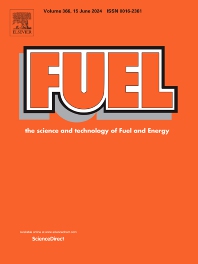Journals in Petroleum and fuel technology
Journals in Petroleum and fuel technology
Showcasing advancements in upstream extraction, refining, and fuel production, this portfolio covers oil and gas technologies, alternative fuels, and energy transition strategies. Featuring practical insights, cutting-edge research, and case studies, it supports researchers, engineers, and industry professionals in optimizing resource recovery, refining processes, and sustainable energy solutions. Addressing environmental impact and innovation, these titles help shape the future of energy production.
Fuel and Energy Abstracts
Fuel and Energy Abstracts is a bimonthly summary of world literature on all scientific, technical, commercial and environmental aspects of fuel and energy. This is an extensive resource for busy researchers to keep up-to-date with new developments in the energy field. This journal is published in association with the Energy Institute.Each issue of Fuel and Energy Abstracts comprises international publications, special reports, monographs, conference proceedings, surveys and statistical analyses, dealing with all scientific, technical, economic and policy aspects of fuel and energy. Every entry is selected from original sources with bibliographic and reference details, and every issue contains full subject and author indexes.The wide range of areas covered in Fuel and Energy Abstracts includes solid fuels, liquid fuels, gaseous fuels, fuel by-products, nuclear fuels, electrical power supply and utilisation, alternative energy sources, hydrocarbons, steam raising, combustion, engines, process heating, power and incineration, refractories/ceramic... space heating and cooling, heat pumps, environment, fuel science and technology, energy, energy conversion and recycling.- ISSN: 0140-6701

Journal of Electroanalytical Chemistry
JEAC (Journal of Electroanalytical Chemistry) is the foremost international journal devoted to the interdisciplinary subject of electrochemistry in all its aspects, theoretical as well as applied.Papers presenting new and interesting electrochemical science that is accessible to the reader are particularly welcomed. Authors should pay particular attention to the key issues of novelty, topicality and quality. The presentation and discussion should be at a level that is consistent with the international status of JEAC.JEAC does not accept reports describing the application of well-established techniques to problems that are essentially technical. Similarly, papers that report observations but fail to provide adequate interpretation will be rejected. Papers dealing with technical electrochemistry should be submitted to other specialist journals unless the authors can show that their work provides substantially insights into electrochemical processes.- ISSN: 1572-6657

Solid State Ionics
Diffusion and ReactionsThis interdisciplinary journal is devoted to the physics, chemistry and materials science of diffusion, mass transport, and reactivity of solids. The major part of each issue is devoted to articles on:(i) physics and chemistry of defects in solids;(ii) reactions in and on solids, e.g. intercalation, corrosion, oxidation, sintering;(iii) ion transport measurements, mechanisms and theory;(iv) solid state electrochemistry;(v) ionically-electronic... mixed conducting solids.Related technological applications are also included, provided their characteristics are interpreted in terms of the basic solid state properties.Review papers and relevant symposium proceedings are welcome.- ISSN: 0167-2738

Fuel
The Science and Technology of Fuel and EnergyResearch into energy sources remains a key issue. Over the last 100 years, Fuel has been the leading source of primary research work in fuel science. The scope is broad and includes many topics of increasing interest such as environmental aspects and pollution.A wide variety of fuels are covered:Fuel cellsCokeHydrogen generation and useOils and gasesSynthetic fuels (including Dimethyl ether (DME), Methanol etc)BiofuelsAdvances in catalysis in sustainable fuelsNatural gasAdvances in materials for energyPetroleumSusta... new fuels - road, aviation and marineControl of emissions from new fuelsWaste-derived fuels (WDF)Refuse-derived fuels (RDF)Carbon with applications to fuel energyCarbon Capture, Utilisation and Storage - Science and TechnologiesAuthors are also welcome to submit to Fuel 's gold open access companion title, Fuel Communications.- ISSN: 0016-2361
